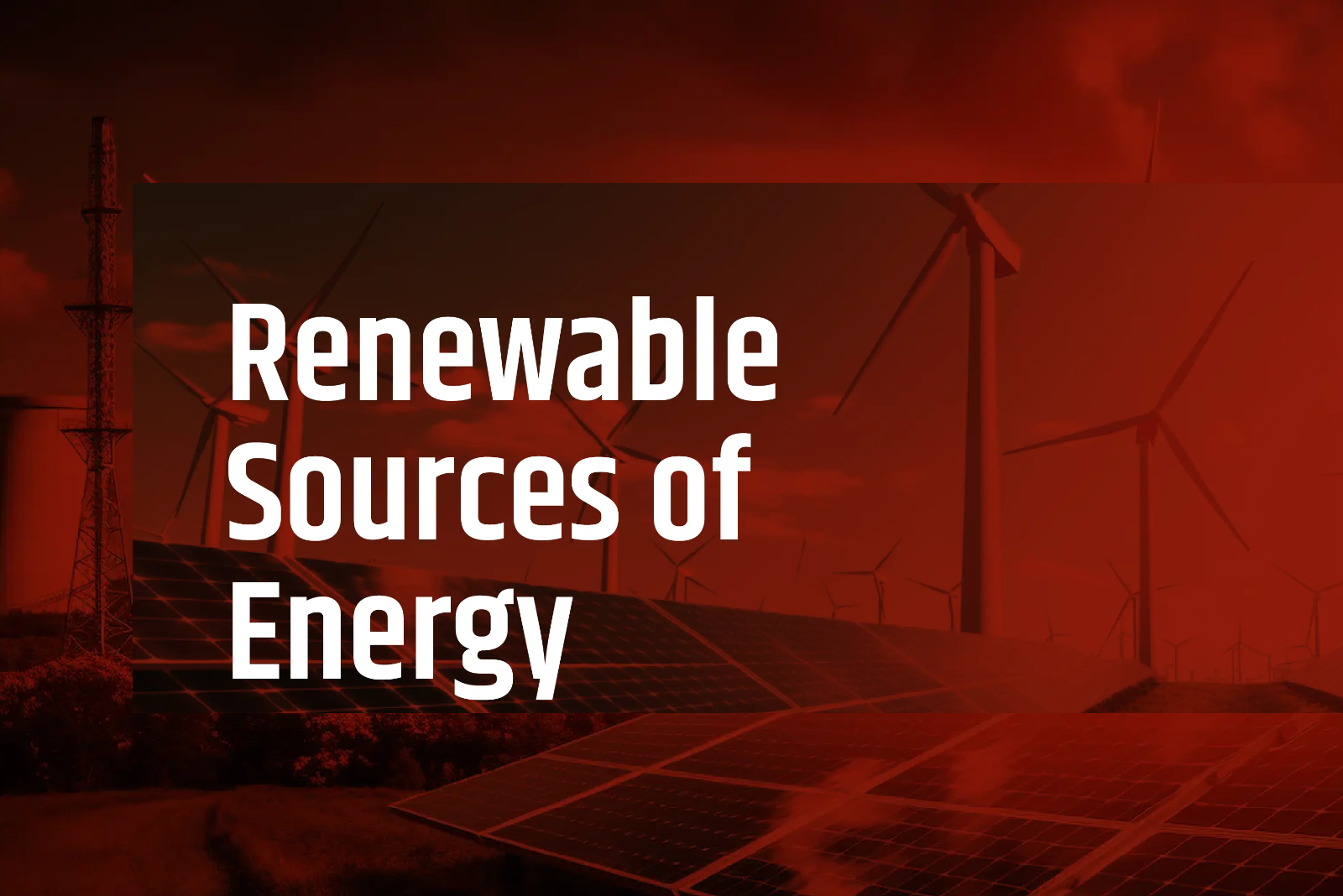7 key renewable energy sources
- Home
- Blogs

We are highly dependent of sources of energy and are on the brink of suffering due to scarcity of the same, are we not? Not to mention the negative effects these sources of energy pose to the environment.
In this world that is driven by energy and a world where everything seems to run on energy, we require sustainable and nature friendly sources, which are scant. This is precisely where renewable sources of energy come into play. With its cost effective and clean nature, renewable energy is the solution to future problems. It is fully successful in addressing the energy needs.
In this fast world, more and more people are adopting renewable energy sources in their day to day and considering sustainable ways of living and these sources play a key role in it. As mentioned before, let’s consider what renewable energy is in a more friendly so as to what it benefits to the environment.
7 Renewable Energy Sources
So, we go on to discuss all the seven types of renewable energy sources in detail.
Solar Energy
Solar energy requires sunlight to create heat or electricity using photovoltaic (PV) cells or thermal systems. This form of energy is one of the most plentiful resources around and has more than one application. Solar panels are installed on roofs, and fields or large scale farms, and are utilized to power large scale industries or even smaller appliances in residences. There are three different types of systems: hybrid, on-grid, off-grid solar power systems.
Advantages:
Sustainable: Energy from the Sun is always available making it possible to produce energy whenever it is required.
Reduction in Electricity Bill: It reduces dependence on grid electricity while cut down the electricity costs significantly.
It has low maintenance costs: Thanks to the technology and support provided, this system requires very little maintenance.
It lowers fossil fuel consumption: People tend to refrain from using fossil fuels that can run out, because of the large accessibility and convenience solar energy provides for fulfilling their basic needs.
Wind Energy
Electricity is produced from wind energy using large wind turbines. Wind turbines are used in open fields such as land. These have multiple blades which turn the shaft that drives the generator, when the wind blows and rotates the blades on the wind turbine the electricity is produced.
Benefits:
It is Abundant: In every corner of the globe, wind is in ample supply, hence it is not possible to run out, furthermore it is easy to use power.
It is Economically Profitable: Following the installation of wind turbines on farms, the cost of generating electricity will be reduced. Such turbines work cheaply too.
It is Eco-Friendly: Wind energy does not emit any pollutants or harmful substances which makes it even cleaner than other sources of energy.
Land Utilization: Grazing land and already established farms in windy areas can have wind generators fitted on them.
Hydropower
The operation of a hydroelectric power plant is based on the potential energy or kinetic energy of the water that rotates a wheel. The simplest energy source known is water hydropower used to produce power by building dams on rivers to create reservoirs and releasing the water through turbines to generate the required electric power but this hydropower source seems too simple.
Benefits:
Energy Reservoir Component: The reservoir serves as an energy reservoir. Therefore electricity can always be generated when needed.
Durability: With adequate maintenance, hydroelectric power projects could last for a very long time, up to centuries.
It’s Reliable: Hydropower facilities have a tendency to work the same way. They always produce electricity.
It’s Not a Dirty Option: Making electricity from water power creates much less carbon emissions when put alongside fossil fuels.
Geothermal Energy
To put it simply, Geothermal Energy is the heat that originates from within the Earth. This form of energy can be used for heating purposes or it can be transformed into electricity as well.
Benefits
It is a Clean Energy: Contrary to fossil fuels, Geothermal Energy Takes Clean Energy Because They Have Very Low Emissions Of Greenhouse Gases
It is Reliable and Consistent: Unlike fossil fuels, the geothermal plants do not face external limitations, hence providing electricity on a regular basis.
It is Space Saving: When compared to other power sources, geothermal plants are more compact because they do not take up as much space, minimizing environmental problems.
It is Versatile: Geothermal Energy is not only useful for the generation of electricity but also for direct heating, industrial uses and more.
Biomass Energy
Biomass is a sustainable energy form derived from organic materials such as wood, animal, or agricultural waste. Biomass can be used for heating or electricity generation. Furthermore, biomass can be converted into biodiesel and ethanol, which are biofuels.
Advantages of Biomass Energy:
It is sustainable: Biomass energy can easily be created, unlike fossil fuels, which take ages to be replenished.
It lowers pollution: By using organic waste, environmental pollution can be significantly reduced because these wastes would have otherwise contributed to pollution.
It is reliable: Biomass energy efficiently responds to demand. Further, biomass energy can be generated according to further demand, which makes it a reliable resource.
It increases land quality: Biomass energy techniques can produce biochar-like byproducts that may improve soil.
Ocean Energy
There are three types of ocean energy: Wave, Tidal, and Ocean Thermal. Ocean energy is described as all the energy that comes from the sea. The movement of the ocean water is used to create electricity.
Advantages:
It Has A Long Lifespan: If an ocean power plant is kept in good working order, it can have a much longer life span.
It Is Plentiful: Water sources are available in all locations, so producing electricity is quite simple.
High energy density: Tidal energy is highly efficient, especially when compared to wind energy, because water is much denser than air.
The amount of energy produced is consistent: The regularity of the tides ensures a reliable schedule for energy production.
Hydrogen Energy
Hydrogen energy is achieved through the electrolysis of water in which the water molecules are separated into oxygen, and hydrogen, it can also be achieved via biomass conversion or extracted out of natural gasses. Next, hydrogen energy is used to generate heat and power.
Advantages:
It is a green energy: Hydrogen energy eliminates carbon emissions making it a clean and safer option than fossil fuels.
Hydrogen is available in abundance which makes it a lot easier to obtain: hydrogen can be utilized anywhere.
Hydrogen is a very good energy carrier which means that when it is needed it is not only portable but it is actually efficient.
Hydrogen energy can be used in multiple ways making it versatile: hydrogen energy is flexible.
